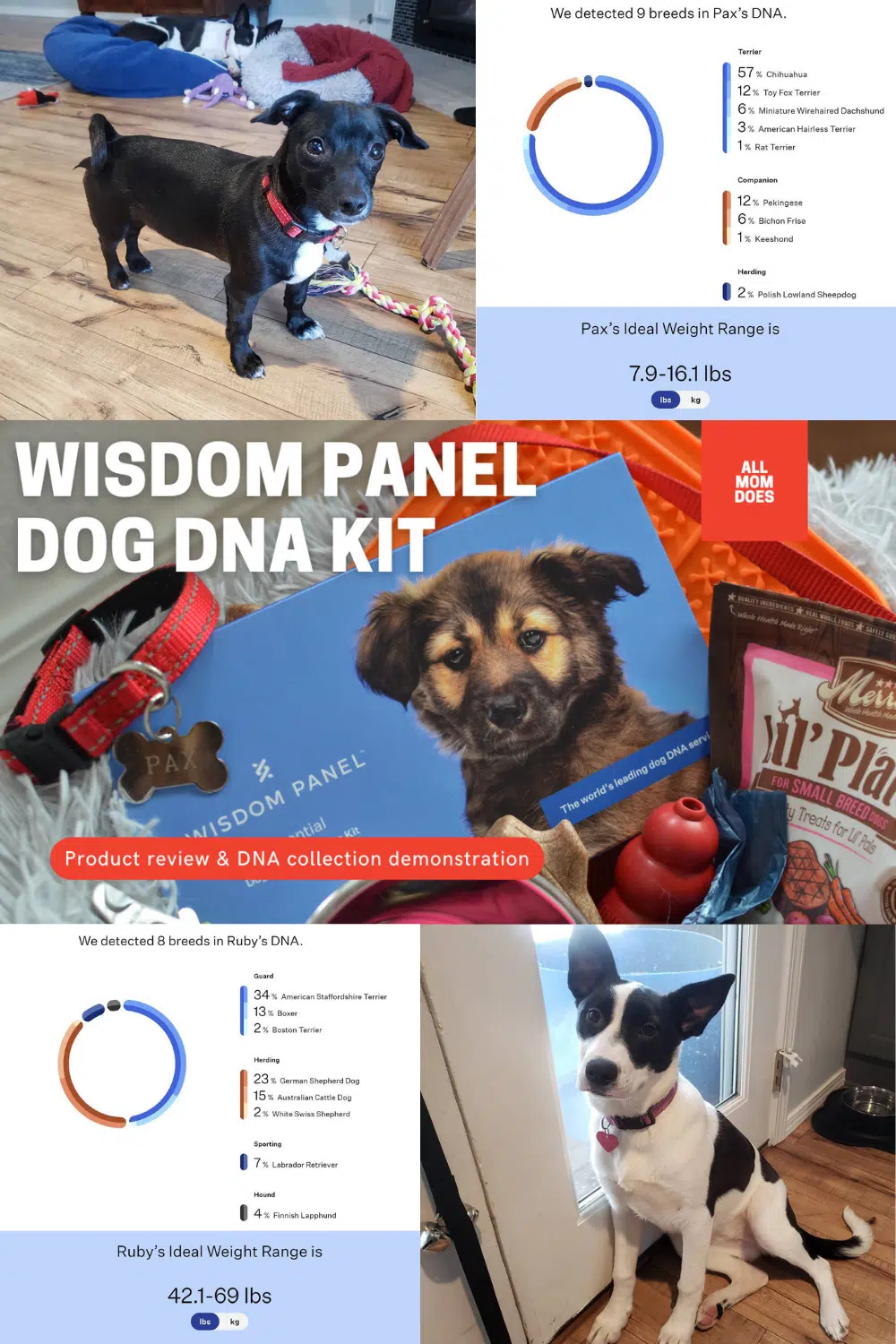Sixteen years ago, we rescued a two-ish-year-old pup from a shelter. She was a black lab. At least, she looked like a black lab. Mostly. But…we never really knew. We realized she probably had a herding breed in her when she tried to herd us all up at the dog park. But still…she was always a black lab to us.
Fast forward to a few months ago when our family grew by two. We adopted four-ish-month puppies from separate shelters and they were both complete mysteries. No clue on parentage, their ages were estimates based on their teeth, and zero information on their pre-shelter histories. Both were both clearly very mixed-breed and while we had some decent guesses on the breeds within one of our pups, the other one was a whole lot tougher. Even the vet didn’t know.
This post is not sponsored, but I did receive free DNA tests from Wisdom Panel to test out their service.
So I started to research dog DNA tests – and here’s what I’ve learned. Research has shown that identifying mixed-breed dogs by appearance is wildly inaccurate. Even canine professionals frequently disagree on primary breed, and in one study over 90% of dogs’ primary breeds were misidentified based on visual identification.
So does it matter? Yes and no. Nature vs. nurture definitely comes into play here. There are a lot of behaviors you can train into a dog, and a lot of behaviors you can train out of a dog. But knowing more about your dog gives you an idea about whether they’re predisposed to certain health conditions, breed-specific behavioral characteristics, and even what types of enrichment activities might be most enjoyable for them based on the breed’s history and origins. You can make adjustments to your training plans based on common knowledge about the breed. And, if you have a dog who is incorrectly identified by appearance as a “bully breed,” you have documentation to support their true genetic makeup in the event they are unfairly targeted by breed-discriminatory policies.
But honestly? Most of all, it’s fun! I will never know where my pups were born or their stories before they came to live with us. I’ll never know their actual birthdays. But now, after doing a DNA test, I know more about them – and I’m seeing little pieces of their genetic makeup come out in their appearances, their play, and their personalities.
And also – we can take care of them better. We now know our small puppy will probably need more calories than are listed on dog food packages because that’s a characteristic of his primary breed. We know we’ll have to switch him away from puppy food far sooner than his bigger sister. We know it’s important to feed her large-breed puppy food to ensure she gets the proper amount of calcium and hopefully prevent hip dysplasia that she’s predisposed to as a larger dog.
Truth be told, I thought dog DNA tests were gimmicky or “just for fun.” But after having my dogs tested I’m really glad I did. Not only do I have more information about them, but I can do my best to make sure they’re healthy as they grow.
I did a lot of research on dog DNA tests before reaching out to Wisdom Panel to partner. There are a lot of options out there, but most reviewers agree that Wisdom Panel gives you the most bang for your buck. Sure, there are cheaper options – but they have far smaller breed databases that they’re pulling from. And there are more expensive options – but for the extra money you’re paying, you’re not getting a whole lot more information than you get from Wisdom Panel.
With Wisdom Panel, there are different tiers to choose from: you can simply opt for breed identification, upgrade to a version that screens for many common genetic conditions, or go all-in and choose the test kit that screens for a much larger list of genetic conditions. Test kits are available for purchase on Amazon, Chewy, or directly from their website.
Have you been thinking about DNA testing your dog? Show them how much you love them by caring for them better. I’d totally recommend getting a test to give you better insight into your pet.
Here are my pups’ results! {Aside from purebred adorable, of course.}
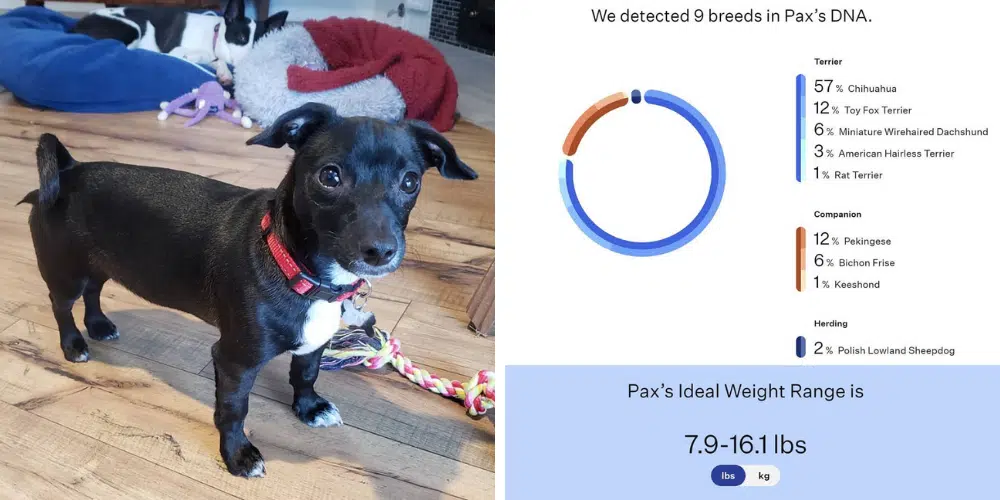
Fun fact: When we got this little guy the shelter had listed him as “large breed – over 44 pounds fully grown.” We figured out pretty quickly that was probably incorrect.
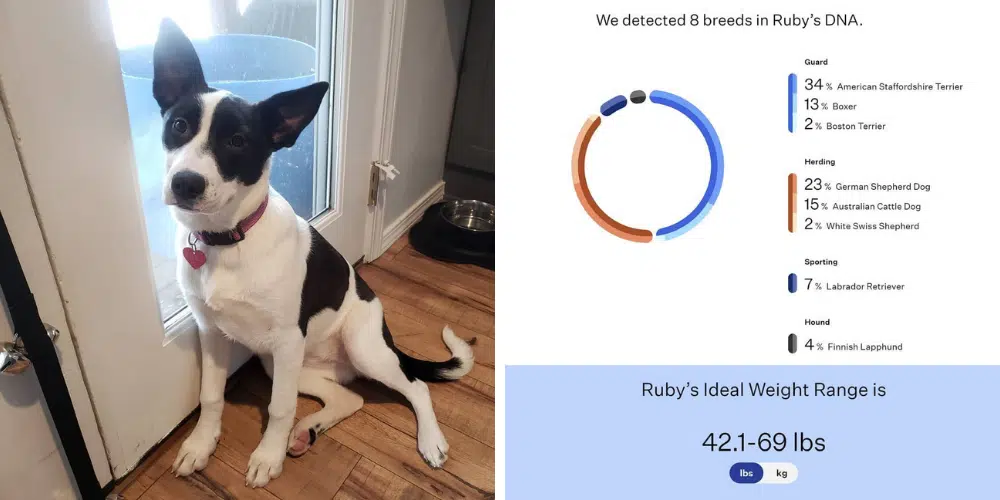
This is just a portion of the information we got about our dogs. There were also health screenings done on 29 genetic conditions, along with detailed information on characteristics of various breeds and information about genetic markers for certain physical characteristics. It was really fun to read!
The whole collection process was really easy. They sent a kit in the mail with swabs inside. I had to swab my dogs’ cheeks for 15 seconds (ok, that was a little challenging), drop them back in the box they came in, and toss it in the mail – no postage required! Two and a half weeks later I had their results in my in-box. That’s it!!!
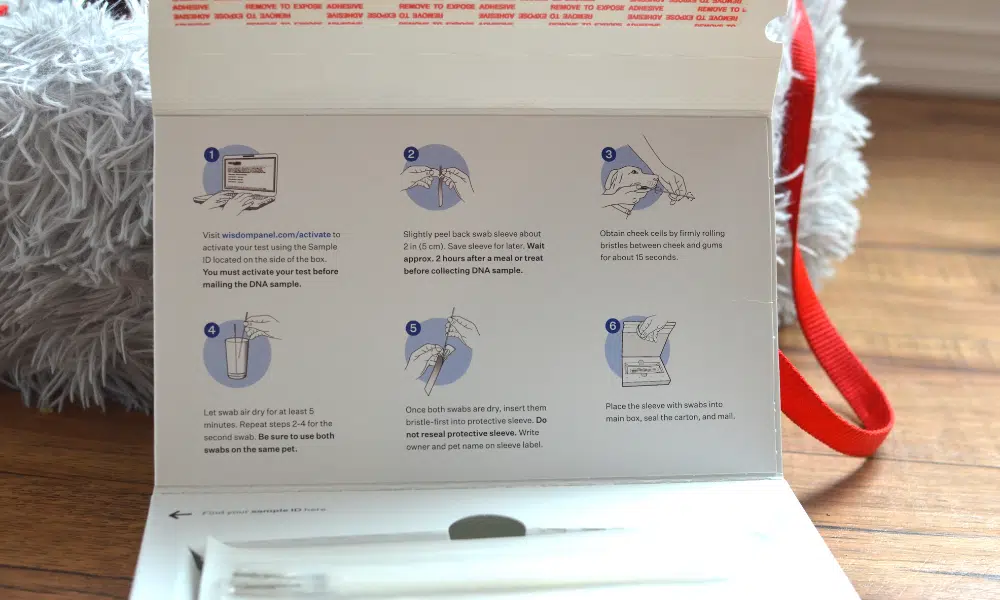
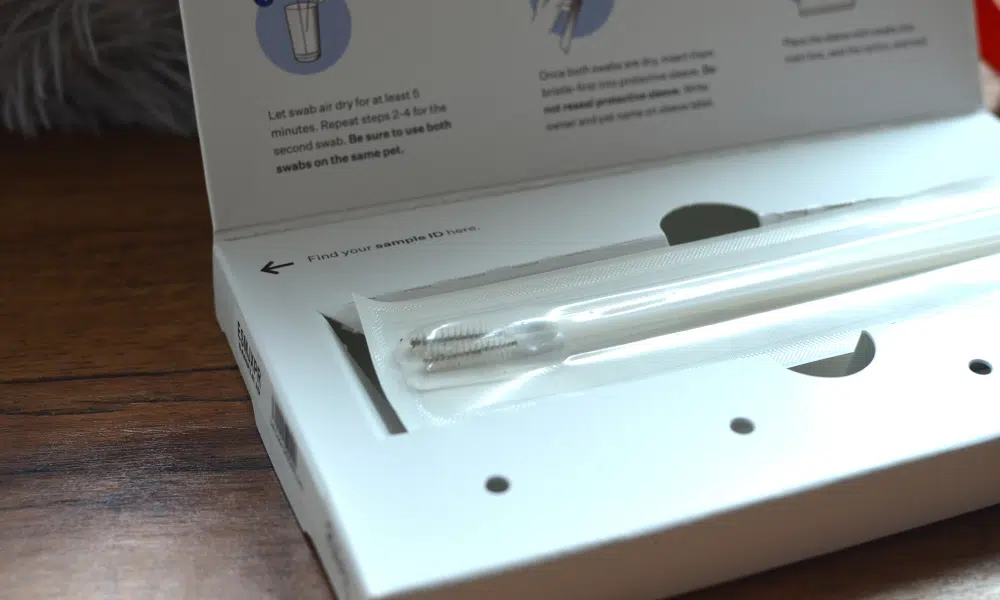
Watch as I take the DNA cheek swabs of my dogs. This is real life, folks – not perfectly-trained pups.
Have you ever done a dog DNA test? Or do you have a pup you’re super curious about? Tell us about it!
PIN THIS!
